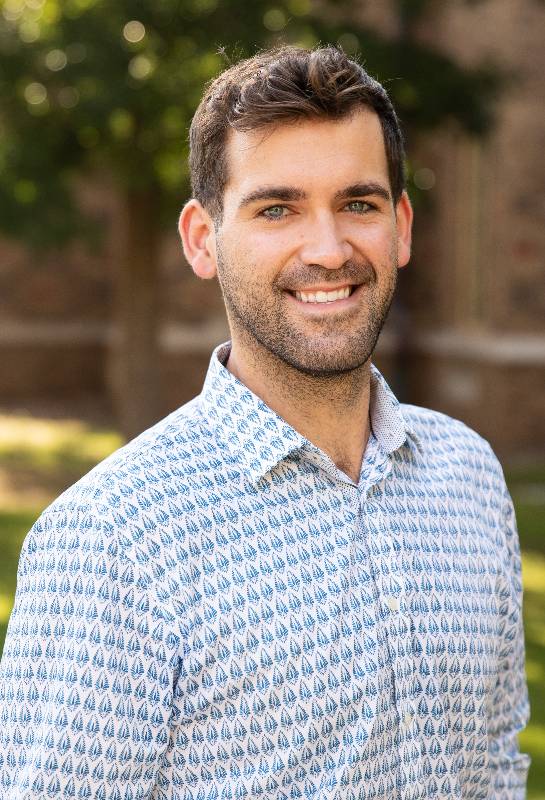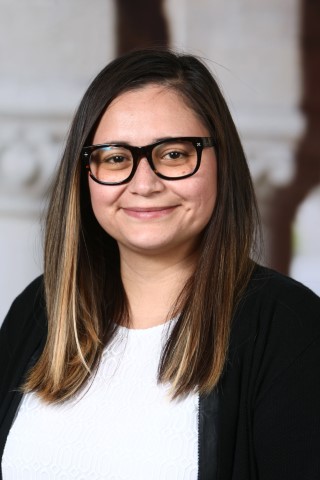M.Ed. in Educational Leadership with a Concentration in Educational Policy
Texas Tech University's Master of Education in Educational Leadership with a Concentration in Educational Policy is a 36-hour online program designed to prepare graduates for non-certified positions in education, government, the private sector, nonprofits, leadership & policy institutes, research-based advocacy groups, or to continue to a doctoral degree. Concentration is on (1) understanding the relationships between education, leadership, and policy; (2) using evidence to make education-related decisions and policies; and (3) preparing to lead meaningful change through policy, research, and practice.
- We prepare educational change leaders in research and policy.
- Students learn how to use evidence to make education-related decisions and policies.
- Taught by dynamic faculty with professional, research, and policy experience and both national and international reputations for excellence.
- Graduates are trained in critical inquiry, with a concentration on equitable leadership and policy.
ExpandED Virtual Brown Bag Talks
Watch all the talks on-demand, hosted by the Educational Leadership Policy faculty.
Want to learn more? Let us send you more info about this program and how to apply:
About the Program
The M.Ed. in Educational Leadership with an Emphasis in Educational Policy is an online degree requiring the completion of 36 credit hours and attracts students both in Texas and nationally, due to the online nature of the program. This degree program is designed with a required “Foundations of Educational Policy” core of 9 credits (3 courses) centered on educational policy development, implementation, and analysis both historically and across national, state, and local communities. There is also a required “Legal and Organizational Change” core of 15 credits (5 courses) centered on leadership, legal, and organizational factors central to educational policy. Finally, students are required to complete coursework in a “Social and Political Issues” core of 12 credits (4 courses), which focuses on the social and political agendas and educational leadership issues that internally and externally influence the development, implementation, and evaluation of educational policy.
Typical Applicants and Career Opportunities
The M.Ed. in Educational Leadership with an Emphasis in Educational Policy provides recognition for expertise in an increasingly important area—leadership in the development, implementation, and evaluation of educational policy. This degree program is of interest to a wide variety of early-career leaders as well as established professionals working in and/or pursuing careers in educational organizations (e.g., schools, educational administration, colleges, universities) as well as organizations that work in partnership with those types of educational organizations. Many current K-12 teachers seek to increase their expertise through graduate degrees to understand how decision-making and systemic change happens in their schools, districts, state, and nation as well as to understand how to either bring about or be part of positive change impacting their schools, classrooms, and students.
The program is also of interest to professionals with experience in related fields and agencies (e.g., social services, family support agencies, juvenile justice) and who have backgrounds in related academic disciplines (e.g., political science, sociology, economics, public administration, government relations), including but not limited to junior-level program specialists and others pursuing careers in educational policy institutes, research centers, advocacy organizations, and district level administrative policy positions. The courses for the non-certification M.Ed. in Educational Leadership, with an Emphasis in Educational Policy, build on a foundation in educational leadership, but include a key focus on policy development, implementation, evaluation, and relevance in the readings and assignments. Thus, students seeking master's-level graduate degrees in EDLD have the opportunity to increase their policy understanding and how to be part of the educational policy process.
Program at a glance:
- Fully online
- 36 credit hours
- Builds equitable leadership skills
- Policy-focused track
- Emphasis on leading change
- Dynamic faculty with real-world experience
Graduates are prepared to begin planning, designing, implementing, understanding, managing, monitoring, and evaluating education-related policies and policy programs. Graduates of this masters program may remain in their current positions, or they may move into positions in the following organizations including, but not limited to:
- Local, State, and National Government Education Agencies (e.g., public school districts, school management organizations, state departments of education, state higher education coordinating boards, US Department of Education, Congressional and state legislative staff, mayoral and county executive staff)
- Policy Institutes and Research-Based Advocacy Groups (e.g., policy analyst, research analyst, junior research scientist, research & development specialist)
- Higher Education Institutions (e.g., policy assessment, college and university accreditation, university compliance, development and fundraising, admissions and enrollment, government liaison)
- Not-for-Profit or Non-Governmental Organizations (e.g., policy analyst, research analyst, project coordinator, campaign organizer, communications officer)
Join Us
Become a leader in your school, organization or community! Join a group of educators and professionals that seek to use policymaking to improve educational systems and make them more equitable for students and families.
Applications should be submitted online via the online application portal on the Graduate School website. There, you will input biographical and contact information and submit required application materials. You can check the status of your application within the same portal.
When applying, please specify the concentration area of interest as “M.Ed. in Educational Leadership with an Emphasis in Educational Policy”. Note: This program carries a “non-certification” designation, which means that this degree track does not lead to professional or state certification. The “non-certification” track is for applicants interested in a research or policy emphasis that leads to non-certified career or academic opportunities.
Application Materials
Applications should include:
- Current resume/CV
- Applicant statement
- Two letters of recommendation
- Transcripts of all your college studies, including any community colleges
International students must also submit scores for the Test of English as a Foreign Language (TOEFL). See http://www.ets.org/toefl for more information and an application for that test.
There is a nonrefundable $65 fee for each application. Applicants should read the "Program Application" and "PhD Program Admissions" sections in the program handbook.
- Due to ongoing impacts of the COVID-19 pandemic, the Graduate School has temporarily changed its admission requirements regarding test scores. The GRE may optionally be submitted by applicants for the 2022-2023 and 2023-2024 academic years, through the Summer 2024 application cycle. International applicants may use certain alternate exams in place of the TOEFL. Please visit the Graduate Admissions COVID-19 FAQ page for more information.
Tuition & Fees
Use the Student Business Services Tuition Estimator to estimate your costs.
FAQ
How much does it cost?
Use the Student Business Services Tuition Estimator to estimate your costs.
Is this program really all online?
Yes, it is a fully online program, but students regularly engage in virtual classrooms using video-conferencing as if they were face-to-face. Instructors can share content like videos and slide presentations or use virtual whiteboard to interact as well.
Can I pursue this program if I am living outside of Texas? Or, outside the US?
Yes. This online program is available to admitted students anywhere in the world. You just need an internet connection.
How is the program structured?
The M.Ed. in Educational Leadership with an Emphasis in Educational Policy is 36 credit hours, which is 12 courses. Students enroll in 2 courses per semester (Spring, Summer, Fall) continuously for 2 years.
Does this masters program require a thesis?
No. This is a non-thesis masters degree.
What is the admission timeline?
Applicants are considered for admission on a rolling basis. Applications are accepted at any time during the year, but we recommend that for best consideration applicants submit by June 15 for Fall admission, by November 15 for Spring admission, and by March 15 for Summer admission. You can check the status of your application within the online application portal on the Graduate School website.
Can I enroll in this program while still working full time?
Yes. This program can be completed while working full time. Students enroll in only 2 courses each semester, allowing enough time to maintain a full work schedule.
Where do I apply?
Applications should be submitted online via the online application portal on the Graduate School website. Make sure to apply for the "non-certification" M.Ed. in Educational Leadership.
| TechLEAD | M.Ed. with Policy Concentration | Ed.D. | Ph.D. |
|---|---|---|---|
| Prepares working teachers interested in pursuing careers as principals in Texas | Prepares graduates for non-certified employment positions or to continue to a doctoral degree | Improves and enhances the skills of executive school leaders | Prepares graduates to be critically engaged educational policymakers |
| Online delivery Learn More |
Online delivery Apply Now |
Online delivery Learn More |
Online delivery Learn More |
| Become a principal or other district leader | Work in education, government, non-profits, advocacy groups, etc. | Administrative leadership in educational institutions, e.g. school districts | Focus on scholarly practice, research, or teaching at university level |
| Internship or field experience required | Internship not required, but practical application recommended | Internship or demonstration of proficiency in program evaluation | Practical experiences in research and scholarly communication |
| Capstone Project | Non-Thesis | Dissertation | Dissertation |
Contacts
Dr. Gottlieb's research focuses on how education policy is used to expand opportunity via access to high-quality learning experiences, and how policy can improve student outcomes in the educational system. Currently, Dr. Gottlieb examines these issues in the context of STEM education policy, teacher workforce policy, and policy design and formation. Dr. Gottlieb is a former classroom teacher in Los Angeles, CA.
Jessica Gottlieb, Ph.D.
Associate Professor, Faculty Lead/Advisor
jessica.gottlieb@ttu.edu
806-834-5341
Dr. Wiseman is an expert at developing sustainable education policy based on large-scale assessment data to create equitable educational access and achievement. He also focuses on strategic planning, change management and classroom instruction. Wiseman is a former classroom teacher in both the U.S. and Asia.
Alexander Wiseman, Ph.D.
Professor
alexander.wiseman@ttu.edu
806-834-7193
Dr. Kirksey's scholarship is broadly focused on issues at the nexus of education and other areas of public policy, including immigration policy, child and family policy, and workforce development. He has published extensively on topics related to student absenteeism and truancy, inclusion and special education, the ripple effects of immigration enforcement, and teacher labor markets.
Jacob Kirksey, Ph.D.
Assistant Professor
jacob.kirksey@ttu.edu
806-834-8473
Dr. Chavez's research centers around policy implementation and its interaction with teaching and learning for students from historically marginalized communities. Her recent work includes projects that look at teachers as institutional actors of policies in Texas and California, how Latine pre-service teachers engage in negotiating anti-Blackness within Latinidad identity, and how in-service teachers engage in culturally and linguistically responsive teaching in Dual Language programs.
Rosa Chavez, Ph.D.
Assistant Professor
rosa.d.chavez@ttu.edu
806-834-1020
College of Education
-
Address
Texas Tech University, College of Education, 3002 18th Street Lubbock, TX 79409 -
Phone
(806) 742-2377 -
Email
educ.webmaster@ttu.edu







